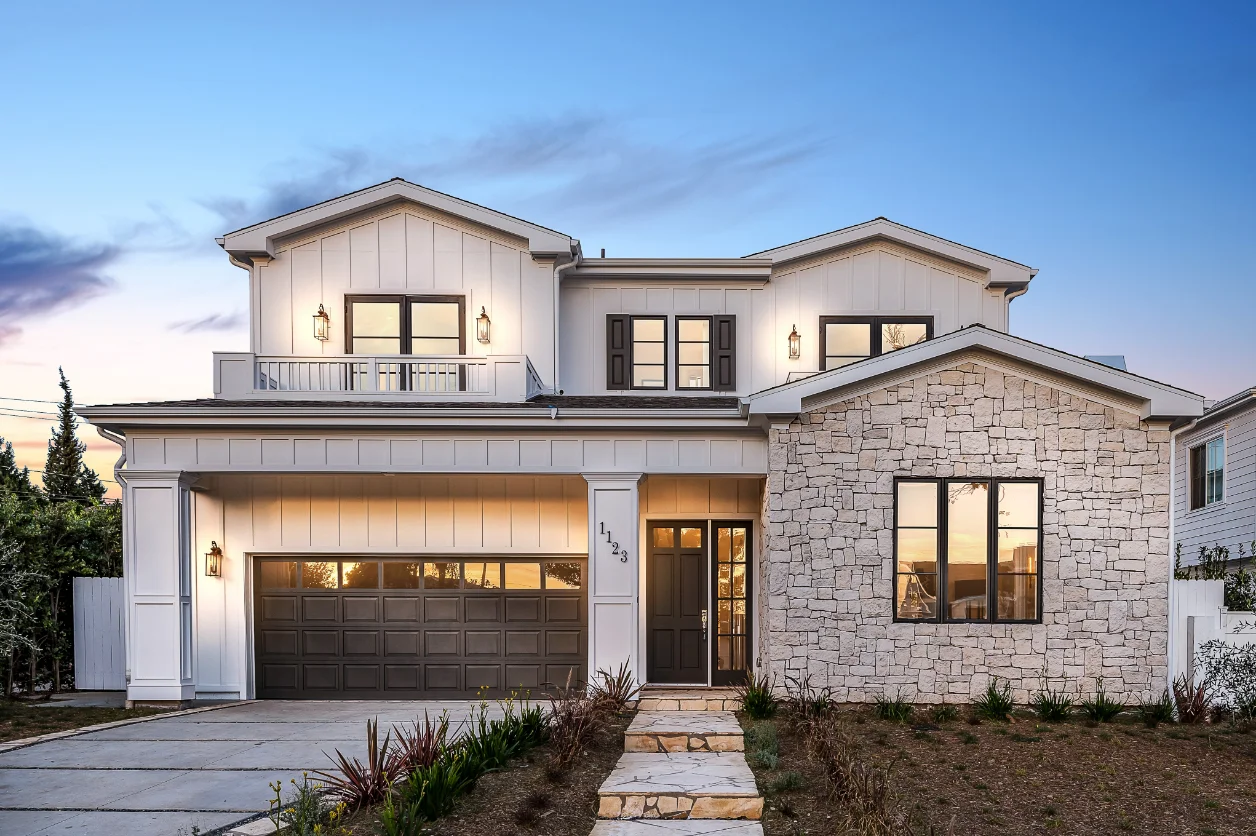
A foreclosure is a procedure to get rid of a person's rights to own and have possession of real residential or commercial property, likewise described as realty. After foreclosure, the person will no longer own the residential or commercial property and will be required to get rid of all his/her valuables and relocation.
A foreclosure is begun by a person, or business, holding a lien on real residential or commercial property. An owner will normally provide a lien upon his/her genuine residential or commercial property as security for repayment of a debt. Typically, a homeowner offers a lien on his/her house to the bank as collateral for payment of a loan to the bank. Sometimes, a lien can be put on real residential or commercial property without the owner's approval where money is owed that has not been paid. For instance, a carpenter can file a building and construction lien for work done on a house, the IRS can file a lien for unpaid taxes, and a financial institution can file a lien for an unsettled judgment.
There are 4 typical kinds of liens on real residential or commercial property: a trust deed, a mortgage, a land sale agreement and an involuntary lien. Foreclosure procedures differ depending on the kind of lien involved.
Trust Deeds

A trust deed is an unique type of mortgage offered by the owner of the genuine residential or commercial property to a 3rd party, called a trustee, who holds a power of sale for the residential or commercial property for the benefit of a creditor (such as a loan provider) up until the financial obligation is repaid. Banks and other loan providers typically utilize a trust deed.

A trust deed can be foreclosed by a suit in the circuit court of the county where the residential or commercial property is located. This kind of foreclosure is referred to as a judicial foreclosure and is now typical for property loans in Oregon. The party holding the lien asks the court for a judgment against the owner for the unsettled amount of the debt together with attorney charges and foreclosure expenses. If the owner does not pay that total to the holder of the lien, then the sheriff of that county will auction off the residential or commercial property to the highest bidder for cash. If there is inadequate cash gotten by the constable to pay the judgment completely, then the holder of the lien can collect what is still owed, called a shortage, from the owner. The owner also needs to leave instantly.
If the foreclosure is on the owner's residence or the residence of the owner's partner or kid, then the owner simply loses the residential or commercial property but does not need to pay a shortage. However, anybody else who guaranteed payment of the debt will need to pay the shortage.
After the sale, the owner has 180 days to buy the residential or commercial property back from the buyer for an amount equivalent to the auction price paid, plus interest and anything the buyer had to pay for such items as taxes and maintenance. This is called a right of redemption.
In order to redeem the residential or commercial property, the owner must serve the buyer of the residential or commercial property with a notification of owner's desire to redeem the residential or commercial property. The notification must state the date and time the owner will make payment to the sheriff and the redemption quantity. The notification of redemption must be served on the purchaser no more than 30 days and no less than 2 week before the payment date the owner defines in the notification of redemption.

The holder of a trust deed can foreclose without litigating, too, through a foreclosure by "ad and sale" or non-judicial foreclosure. The trustee sends by mail a notification of default and a "notice of home loss risk" to the owner (and any other persons holding an interest in the residential or commercial property) of the quantity of the financial obligation and the sale date, time and place, and publishes notification of the sale in a paper. The trustee then auctions off the residential or commercial property to please the financial obligation, the attorney costs and foreclosure costs. Following the sale, the owner must vacate the residential or commercial property within 10 days of the sale. This foreclosure process takes approximately 140 days.
In this type of foreclosure of a trust deed, the owner has no right of redemption after the sale. However, when the foreclosure is by "ad and sale," the owner does not have to pay a shortage, either, if the residential or commercial property is house. In addition, the owner can stop the foreclosure by paying all delinquent payments together with trustee's and lawyer fees and costs at any time approximately 5 days before the scheduled sale date. The trustee will then submit a notification in the county records revealing that the foreclosure case has ended.

Foreclosure frequently prevents lien holders from looking for a shortage against the debtor. This protection can be lost if the debtor elects to do a brief sale to prevent the foreclosure. It is essential to talk to a lawyer before doing a short sale.
Mortgages
A mortgage is similar to a trust deed but does not include a 3rd party trustee. With a mortgage, the owner gives a lien on the residential or commercial property as collateral for the debt.
A mortgage can be foreclosed by submitting a claim in the circuit court of the county in which the residential or commercial property is situated. The foreclosure is dealt with in the very same manner in which a court foreclosure of a trust deed is managed. The only difference is that there is no right to gather a shortage from the owner following foreclosure, if the mortgage was provided as collateral to the seller of the residential or commercial property, or if the mortgage was provided to a bank or other lending institution for a debt of less than $50,000, and the cash was used to pay for the residential or commercial property.

Land Sale Contracts
A 3rd type of lien is a land sale agreement. The land sale agreement is a contract between the seller and buyer of genuine residential or commercial property. The seller accepts provide the buyer a deed to the residential or commercial property once the purchase rate has been paid. It is really essential to carefully check out a land sale contract since the rights of the parties might vary considerably depending upon the phrasing of the agreement.
The seller under a land sale contract has three primary foreclosure rights.
First, the seller can file a lawsuit in the circuit court of the county where the residential or commercial property lies requesting for the unpaid balance of the contract together with lawyer costs and foreclosure expenses. If the seller's case achieves success, the sheriff will then carry out a public auction for cash. Just like court foreclosure of a trust deed, if there is inadequate cash to pay the judgment, the purchaser is accountable for paying the difference to the seller. The buyer likewise should instantly vacate the residential or commercial property after foreclosure. Unlike a court foreclosure of a trust deed, however, the purchaser has no right to buy the residential or commercial property back after foreclosure.
The seller can choose instead to submit a suit in the county where the residential or commercial property is, to remove the purchaser's interest in the residential or commercial property. This is referred to as rigorous foreclosure. In a strict foreclosure action, the seller gets the residential or commercial property back and the purchaser need to pay to the seller all of the seller's lawyer charges and foreclosure costs. The buyer is not accountable for a deficiency besides attorney charges and foreclosure expenses but has no right to buy the residential or commercial property back either.

The final foreclosure option is understood as forfeit. It is comparable to a foreclosure by advertisement and sale of a trust deed. Here, the seller sends notice to the buyer and other parties having an interest in the residential or commercial property, describing the quantity of the debt and a forfeit date. If the buyer does nothing, the buyer's interest in the residential or commercial property will be gotten rid of, and the purchaser needs to right away move out of the residential or commercial property. Until the date of the forfeit, however, the purchaser has the right stop the forfeit by comprising the back payments together with lawyer fees and forfeiture expenses. The seller will then submit a notice in the county records showing that the forfeiture proceeding has ended.
Liens on Residential Or Commercial Property without the Owner's Consent
The last classification of liens is those that are put against the residential or commercial property without the owner's consent. As explained above, those can consist of liens filed by workers on the residential or commercial property, liens applied for unsettled taxes and liens submitted by lenders holding judgments versus the owner. Each of those liens has their own special procedures for foreclosure. For the most part, nevertheless, the result is the very same: the sheriff of the county where the residential or commercial property lies will hold a public auction and offer the residential or commercial property to the highest bidder for money. If the money is not adequate to pay the quantity of the financial obligation, the individual who owes the cash secured by the lien will be accountable for the difference. With particular liens, the owner may can purchase back the residential or commercial property after the sale.








